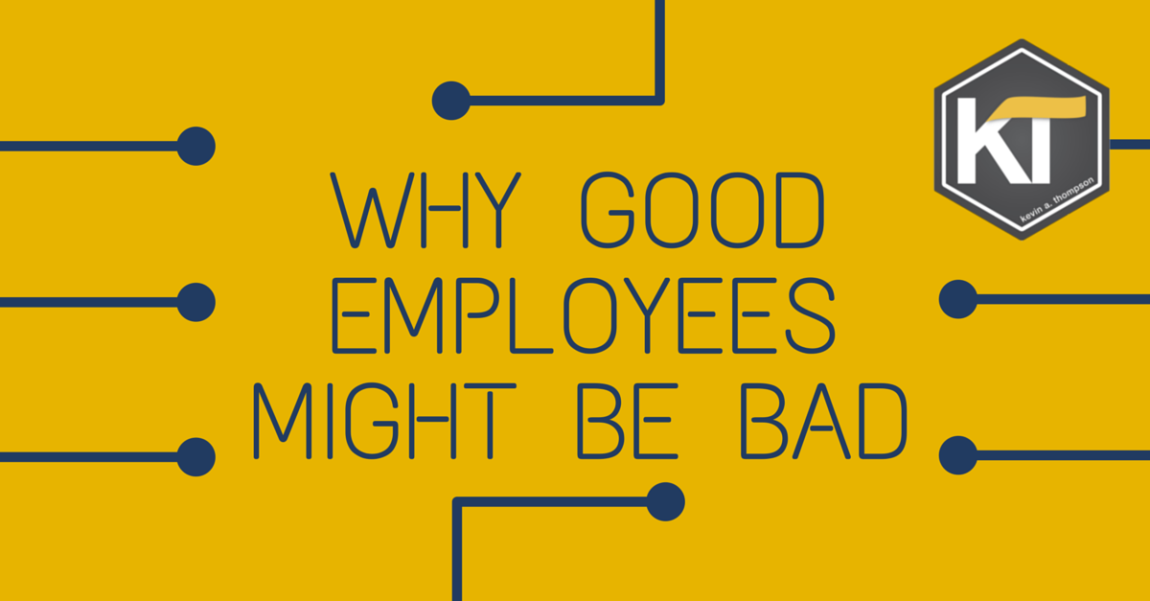Is your job good or bad?
How about your marriage?
What about your personal life?
We often ask people:
- Was the movie any good?
- Did you get a bad report?
- Did you have a good meal?
Maybe it goes back to our fight or flight nature where every circumstance had to be judged, but we are predisposed to think of every situation in binary terms. Something is either a 1 or a 0. It’s either good or bad. (See: Drill, Rest, Drill Again)
While binary thinking might be simple, it isn’t productive. Thinking in terms of good or bad hinders our development, encourages apathy, and keeps us from experiencing the success we could achieve.
There is a better way.
Instead of thinking in terms of “good or bad” we need to think within the context of “better.”
How can I have a better marriage? Be a better employee? Have a better life?
Which is the better movie to watch? The better meal to order? The better decision to be made?
The problem with “good or bad” is that it rarely empowers us to change. While we might fairly judge between good and bad regarding things we experience—a meal, a movie, or a service we receive—we are predisposed to assume what we are doing is good. Our actions may not be as good as we wish, but we never consider ourselves bad.
What employee would describe their performance as bad? (See: Three Things Every Employee Should Do)
Who would consider themselves morally bad?
Who would admit they are bad at marriage?
It just doesn’t happen. And because we are incapable of properly seeing ourselves or simply hesitant of being honest, the good/bad dichotomy causes us to overestimate our marriages, job performances, parenting skills, and every other area of our lives. We won’t call ourselves bad, so we must be good; and if we are good, there is no need to do anything.
But there is a better way.
Compare these questions:
- Is your job performance good or bad?
- How can you do a better job?
The first question requires reflection. A choice must be made. But the choice does not result in any obvious action. Either your performance is good or bad. That is it. If it’s bad, a person might be motivated to do something about it, but they would have to determine what actions to take. Yet because of the human tendency to assume we are good, most individuals would put themselves in the good category, which would require no action.
The second question is different. No matter your past success, every person would be required to consider how to make it better. Instead of falling into the predictable, “I am good” category and doing nothing in response, everyone would be challenged to improve. (See: How to Determine What to Do–In Marriage, At Work, In Life)
This is the problem with a good employee. When an employee thinks they are good, they are tempted to believe there is nothing more they need to learn, do, or understand. When we consider ourselves good, we tend toward apathy. At the end of a meal at a restaurant, the waiter might asked me if I would like anything else. When I am finished, I often say, “No, I’m good.” It means there is nothing else which needs to be done.
Whenever we think our job performance, work ethic, cognitive ability, marriage, parenting skills, or any other area of life is “good,” we are tempted to think there is nothing else which needs to be done.
“Better” is a far more productive thought than “good/bad.”
Better always drives us for more.
I don’t want a good marriage; I want a better one. (See: This Is the Kind of Husband I Want to Be)
I don’t want to be a good employee; I want to be a better one.
I don’t want to be a good person; I want to be a better one.
Better should be the continual question at work, in marriage, and in life.
How can we get better? Be better? Do better?
As long as we keep asking the better question and striving to answer it, we will be on a continual pattern of improvement. The moment we think in simple terms of good or bad, our development will likely stop.
In what area of life do you need to change your thinking from “good or bad” to better?



